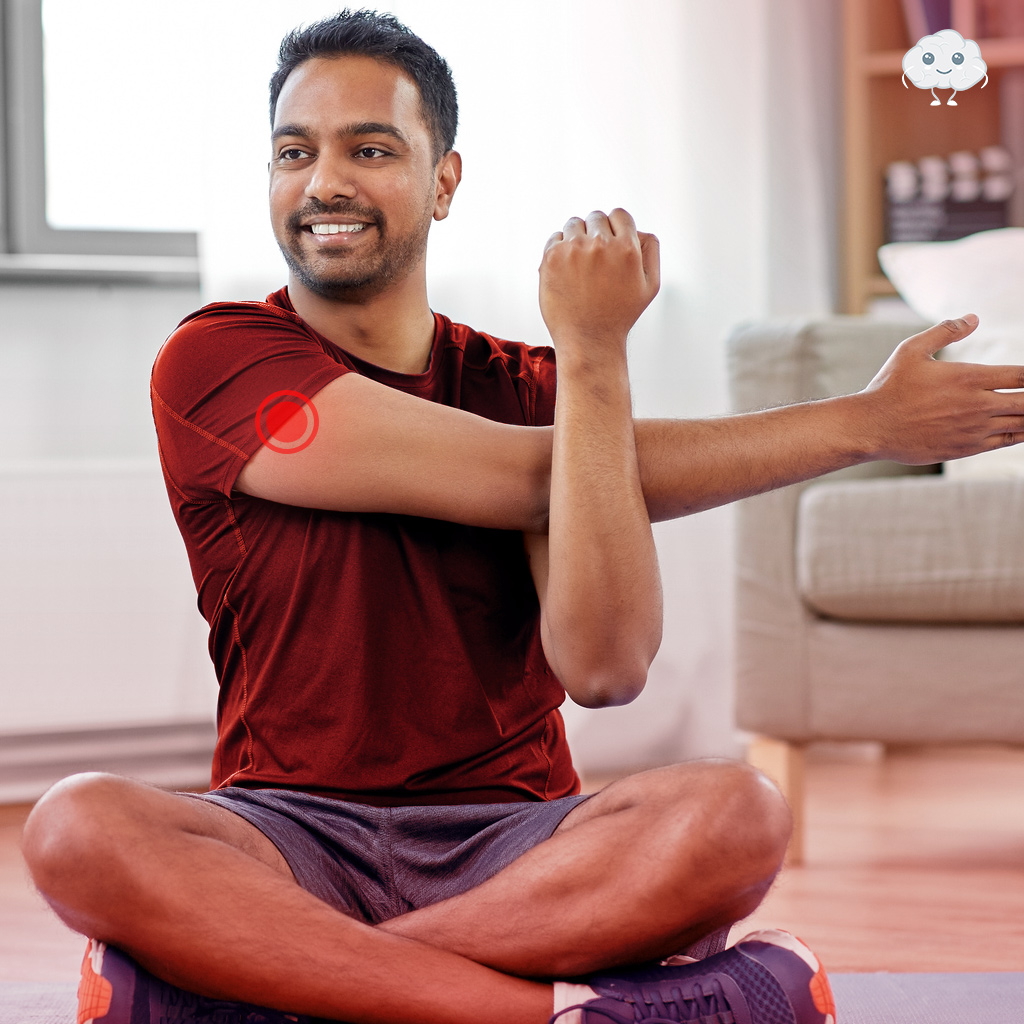Have you ever found yourself driving on autopilot and barely remembering the route? Or eating a snack without really savoring it? These are times when we’re not practicing mindfulness. Learning how to meditate can help bring more awareness to these everyday activities.
Imagine yourself savoring a cup of coffee. With mindfulness, you would notice:
- The subtle aroma rising from the cup
- The warmth of the liquid in your hands
- The flavor spreading on your tongue
- Your thoughts and sensations while drinking
Mindfulness, also known as full attention, has been gaining increasing prominence as a powerful practice for improving mental and physical well-being. In this complete guide, we’ll explore what mindfulness is, its scientifically proven benefits, and how you can start practicing, including with the help of guided meditation and apps like WeMind.
Whether you’re a curious beginner about how to practice mindfulness or someone looking to deepen your mindfulness meditation practice, this article will offer valuable insights and practical techniques to incorporate mindfulness into your daily life.
What is Mindfulness?
Mindfulness is a practice that involves bringing attention to the present moment intentionally and without judgment. Jon Kabat-Zinn, a pioneer in applying mindfulness in the West, defines it as “paying attention in a particular way: on purpose, in the present moment, and non-judgmentally” [1].
Imagine your thoughts as clouds in the sky. Mindfulness is like lying on the grass, watching these clouds pass by. You see them, recognize their shapes, but don’t try to grasp or change them. They simply come and go. This is the essence of observing your thoughts and feelings without judgment.
Mindfulness involves various techniques, including guided meditation and mindfulness exercises. These practices help develop moment-to-moment awareness, allowing you to observe your thoughts and feelings without judgment.
Benefits of Mindfulness
Regular mindfulness practice offers a wide range of benefits for mental and physical health, all backed by scientific research. Here are some of the main benefits of mindfulness:
Stress reduction: Studies show that mindfulness practice can significantly decrease cortisol levels, the stress hormone, in the body [2]. This happens because our brain’s alert system is not unnecessarily activated when we practice mindfulness regularly.
Improved sleep quality: Mindfulness meditation has shown effectiveness in reducing insomnia and improving overall sleep quality [3]. Imagine the importance of waking up every day rested and with your battery recharged.
Increased focus and concentration: Regular mindfulness practitioners report greater ability to maintain attention and better performance in tasks that require concentration [4].
Anxiety management: Mindfulness can be a powerful tool for dealing with anxiety symptoms, offering techniques to calm the mind [5].
Promotion of emotional well-being: Mindfulness helps develop greater awareness and regulation of one’s emotions, leading to better mental balance [6].
Improved physical health: Research indicates that regular mindfulness practice can strengthen the immune system and help manage chronic pain. Additionally, regular mindfulness practitioners had an average reduction of 5 points in systolic blood pressure [7].

Beyond these proven benefits, many people report that mindfulness helps them develop greater emotional resilience, improve their interpersonal relationships, and increase their overall sense of well-being and life satisfaction. Learning how to meditate regularly can be the key to achieving these results.
It’s important to note that while the benefits of mindfulness can be quickly felt by some practitioners, for others, it may take time and consistent practice to experience all the benefits. The WeMind app offers structured guided meditation programs that can help you develop a regular practice and reap these benefits over time.
How to Meditate and Practice Mindfulness with WeMind
The WeMind app is a powerful tool for starting and deepening your mindfulness practice. Designed to cater to both beginners and experienced practitioners, WeMind offers:
- Guided meditations: A wide variety of meditations for different needs, from stress reduction to sleep improvement.
- Mindfulness exercises: Practical techniques to incorporate mindfulness into your daily life, including mindfulness at work and in everyday activities.
- Personalized programs: Mindfulness journeys tailored to your level and personal goals.
- Mindfulness breathing techniques: Breathing-focused exercises to calm the mind and increase body awareness.
- Content for beginners: Step-by-step guides and instructions for those starting to practice mindfulness.
With WeMind, you have access to a complete mindfulness meditation platform, allowing you to practice anytime and anywhere, making it easier to incorporate mindfulness into your daily routine.
Overcoming Challenges and Incorporating Mindfulness into Your Daily Life
While mindfulness offers numerous benefits, it’s important to recognize that the practice can also present challenges, especially for beginners:
“I don’t have time”:
- Start with short 1-5 minute sessions on WeMind.
- Use WeMind’s “Quick Sessions” theme for brief and effective practices.
- Practice mindfulness during meals using WeMind’s “Eating” theme.
“My mind won’t stop thinking”:
- Remember: the goal is not to stop thoughts, but to observe them without judgment.
- Use WeMind’s “Beginners” cycle to learn techniques for dealing with thoughts.
- Regularly practice the “Underlining Thoughts” exercise available in the app.
“I forget to practice”:
- Set reminders on your phone.
- Associate the practice with daily activities, such as before bed or upon waking.
- Choose a fixed time for your daily practice.
“I don’t know if I’m doing it right”:
- Follow WeMind’s guided cycles for structured progression.
- Remember that there is no “right” or “wrong” way – consistency is most important.
- Use the “Beginners” theme to build a solid foundation.
“I’m not feeling any effect”:
- Be patient – the benefits of mindfulness accumulate over time.
- Keep a practice journal to notice subtle changes over the weeks.
- Remember that cultivating mindfulness is like tending a garden. You don’t see plants grow instantly, but with constant care, they flourish.
“I don’t want to spend money on a meditation app”:
- Consider mindfulness as an investment in your mental health and well-being.
- Compare the cost of WeMind with other forms of self-care or therapy.
- Take advantage of WeMind’s free trial period to experience the benefits.
- Remember that many of the costs associated with stress and anxiety can be reduced with regular practice.
According to the British health system, mindfulness is the most cost-effective mental health method. With WeMind, you have access to complete content at an affordable price. You don’t need to spend on expensive and difficult-to-use courses.
Conclusion
Incorporating mindfulness into your life may seem challenging at first, but with consistent practice and the right tools, such as the WeMind app, you can experience the numerous benefits of this ancient practice. Start your mindfulness journey today and discover how mindfulness can transform your life for the better.
Download the WeMind app now and take the first step towards a more conscious and balanced life with our guided meditations and personalized mindfulness exercises.
References
[1] Kabat-Zinn, J. (1994). Wherever you go, there you are: Mindfulness meditation in everyday life. New York: Hyperion.
[2] Goyal, M., Singh, S., Sibinga, E. M., Gould, N. F., Rowland-Seymour, A., Sharma, R., … & Haythornthwaite, J. A. (2014). Meditation programs for psychological stress and well-being: a systematic review and meta-analysis. JAMA internal medicine, 174(3), 357-368.
[3] Khoury, B., Lecomte, T., Fortin, G., Masse, M., Therien, P., Bouchard, V., … & Hofmann, S. G. (2013). Mindfulness-based therapy: a comprehensive meta-analysis. Clinical psychology review, 33(6), 763-771.
[4] Zeidan, F., Johnson, S. K., Diamond, B. J., David, Z., & Goolkasian, P. (2010). Mindfulness meditation improves cognition: Evidence of brief mental training. Consciousness and cognition, 19(2), 597-605.
[5] Black, D. S., O’Reilly, G. A., Olmstead, R., Breen, E. C., & Irwin, M. R. (2015). Mindfulness meditation and improvement in sleep quality and daytime impairment among older adults with sleep disturbances: a randomized clinical trial. JAMA internal medicine, 175(4), 494-501.
[6] Arch, J. J., & Craske, M. G. (2006). Mechanisms of mindfulness: Emotion regulation following a focused breathing induction. Behaviour research and therapy, 44(12), 1849-1858.
[7] Hughes, J. W., Fresco, D. M., Myerscough, R., van Dulmen, M., Carlson, L. E., & Josephson, R. (2013). Randomized controlled trial of mindfulness-based stress reduction for prehypertension. Psychosomatic Medicine, 75(8), 721-728.





